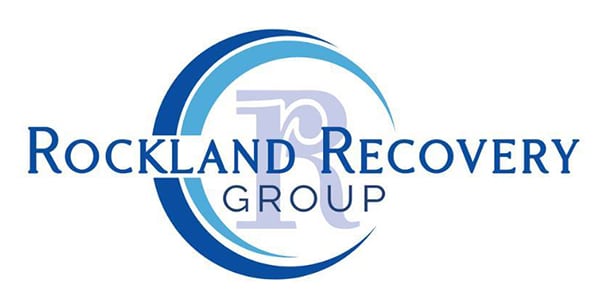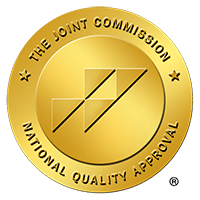Overcoming heroin addiction is one of the toughest battles you’ll ever face, but it’s also one of the most rewarding. Heroin’s grip can feel unbreakable, yet countless individuals have successfully reclaimed their lives from its clutches. Your journey to recovery starts with understanding the process and having the right strategies in place.
You’ll need a blend of medical support, personal determination, and a solid network of friends or family. By recognizing the signs of addiction and seeking professional help, you can take the first steps toward a healthier, drug-free life. This guide will walk you through practical steps and resources to help you overcome heroin addiction and reclaim your future.
Jump to Section
Understanding Heroin Addiction
Heroin addiction is a chronic disease that affects the brain’s reward system. This powerful opioid causes intense euphoria, driving individuals to continue using it despite harmful consequences. Compulsive drug seeking and use, typical of addiction, are not merely a result of weak willpower. The substance hijacks the brain’s natural processes.
Repeated heroin use disrupts the brain’s ability to produce its own endorphins. This makes cessation difficult. Overcoming heroin addiction requires understanding this biochemical dependency. Quitting heroin involves more than just stopping use; it’s about retraining the brain to function without the drug.
Heroin Withdrawal
Withdrawal symptoms, including nausea, sweating, and severe cravings, can be overwhelming. These symptoms often cause users to relapse if they don’t receive appropriate support. Medical detoxification helps manage these symptoms safely. Combining medical treatments with therapy offers a comprehensive approach to recovery, increasing the chances of long-term success.
The Risk of Heroin Overdose
Heroin use disorder leads to physical dependence, where the body becomes accustomed to the drug. As tolerance builds, individuals require more heroin to achieve the same effects, which increases the risk of overdose.
A heroin overdose occurs when the drug depresses the body’s vital functions, such as breathing and heart rate, to dangerously low levels. This can be fatal if not treated promptly. Seeking help for heroin use disorder is crucial, as continued heroin use significantly increases the chances of experiencing a heroin overdose.
Knowing the signs of addiction and seeking professional help is the first step toward quitting heroin. Resources like hotlines or addiction specialists offer guidance and support whenever you’re ready to stop using heroin.
For immediate assistance, contact Rockland Recovery Group at 888-299-4833.
Steps to Overcome Heroin Addiction
These steps to overcome heroin addiction provide a structured path to recovery, focusing on professional help, treatment options, relapse prevention, and support networks.
Recognize the Addiction
Understanding addiction is the first step. Look for physical, behavioral, and psychological signs. Physical signs include needle marks and weight loss. Behavioral signs involve secrecy, stealing, and neglecting responsibilities. Psychological signs are mood swings, anxiety, and depression. Recognize these signs to accept the need for quitting heroin.
Seek Professional Help
Professional help is crucial. Contact a heroin addiction treatment program to start detoxification. Detox removes heroin from your body under medical supervision, reducing withdrawal symptoms. Therapies like cognitive-behavioral therapy (CBT) address underlying issues. Seek professionals who offer a comprehensive approach to stop using heroin.
Explore Heroin Addiction Treatment Options
Treatment options vary. Medication-Assisted Treatment (MAT) combines medications with counseling. Medications like methadone and buprenorphine minimize cravings. Explore therapies such as group sessions and individual counseling. Facilities like Rockland Recovery Group offer structured programs tailored to your needs. Choose a plan that suits your condition.
Develop a Relapse Prevention Plan
Identify triggers that lead to heroin use, like stress or particular environments. Develop coping strategies, such as mindfulness and exercise. Regular therapy sessions help reinforce these strategies. Establish a routine to maintain a drug-free lifestyle, focusing on self-care and healthy habits.
Build a Support Network
A strong support network is vital. Engage with friends, family, and support groups. Consider joining community programs or finding a mentor. Organizations like Rockland Recovery Group provide structured environments for rebuilding your life. Connect with others who share your journey to strengthen your resolve. For immediate assistance, contact 888-299-4833.
Make Lifestyle Changes to Support Your Recovery
Implementing lifestyle changes can significantly support your journey to overcoming heroin addiction. Start by fostering a healthy daily routine. Regular exercise, balanced nutrition, and adequate sleep help restore physical health and stabilize mood. Consider incorporating activities like yoga or meditation to manage stress and improve mental well-being.
Eliminating Negative Influences
Eliminate negative influences from your life. Distance yourself from people, places, and situations that encourage drug use. Surround yourself with supportive individuals who promote sobriety. Joining community groups or programs, such as those offered by Rockland Recovery Group, provides a supportive environment and resources tailored to help you stop using heroin.
Engaging in New Hobbies and Interests
Develop new hobbies and interests to replace old, harmful habits. Engaging in productive, enjoyable activities helps occupy your mind and reduces the urge to use drugs. Pursue learning opportunities, volunteer work, or creative arts to build a fulfilling, substance-free lifestyle.
Setting Realistic Goals
Set realistic goals and monitor your progress. Break down your long-term objective of quitting heroin into smaller, manageable milestones. Celebrate achievements, no matter how small, to stay motivated. Keep a journal to track your journey and reflect on your growth.
Building a Structured Daily Schedule
Build a structured daily schedule. Establishing a routine helps maintain focus and reduces the likelihood of falling back into old patterns. Dedicate specific times for meals, exercise, relaxation, and social activities. Consistency reinforces positive habits and supports sustained sobriety.
Seeking Professional Guidance
Finally, seek professional guidance to navigate the complexities of overcoming heroin addiction. Therapists and counselors offer valuable insights and coping strategies tailored to your needs. Consider reaching out to recovery experts, like those at Rockland Recovery Group, who provide a comprehensive approach to beating addiction.
For immediate assistance on how to overcome heroin addiction, call 888-299-4833.
Rockland Recovery Group is Here for You
Overcoming heroin addiction is a challenging but achievable journey. With the right support and resources, you can reclaim your life and build a healthier future. Rockland Recovery Group offers a structured environment and a variety of services to help you on this path. Remember that commitment to recovery and setting realistic goals are key components of success.
Don’t hesitate to seek professional help and lean on your support network. Every step you take brings you closer to a drug-free life. For immediate assistance, reach out to addiction specialists or hotlines. You’re not alone in this battle, and with determination and the right support, you can overcome heroin addiction.






